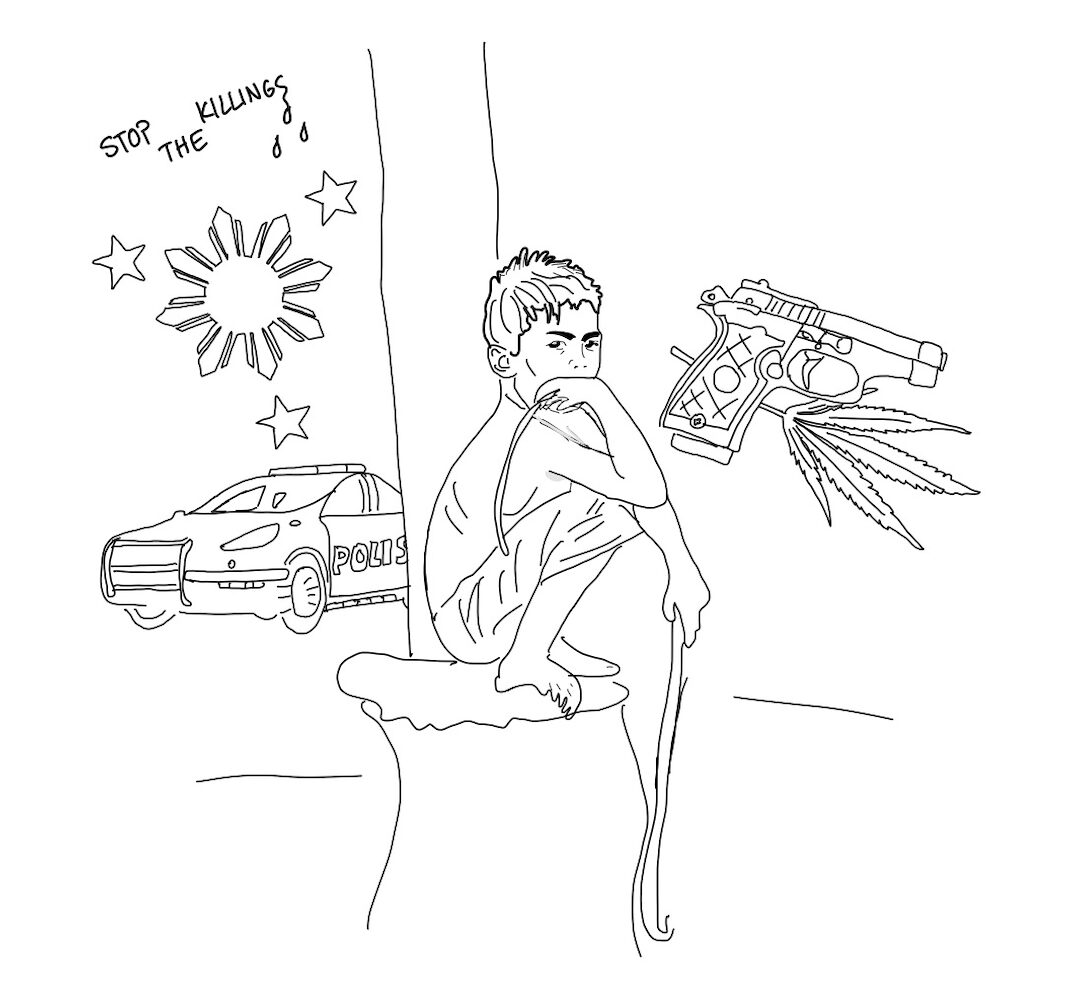Abstract:
The War on Drugs concentrated in Metro Manila exemplifies the structures of organized abandonment inherited from legacies of colonialism and imperial domination while simultaneously reinforcing existing power structures created by this history. This is evidenced through the intersection of socioeconomic disparities and systemic inequalities with the environmental impacts of the War’s policing and vigilante tactics, particularly invigorated within Metro Manila’s marginalized communities. The implications for social and environmental justice within this urbanization and law enforcement framework underscore the perpetuation of historical injustices shaped by colonialism and imperialism, ultimately highlighting a tragic and colossal violation of human rights.
Through the various intersections of socio-economic disparities and systemic inequalities, the structures at play inherently bear colonial and neo-colonial scars and function with the social hierarchies established during these eras. As seen through the histories depicted within this zine, the legacies starting from over 400 years ago still exist and cycle into further inequalities such as the Drug War. As this violation of human rights exacerbates and jabs the weak points created by colonialism and imperialism, this only pushes marginalized communities further down and reinforces their cycles of oppression and poverty. By employing neo-colonial law enforcement tactics alongside a bureaucratic emphasis on quantitative outcomes rather than qualitative rehabilitation, the resultant storm encapsulates a carceral and inhumane neo-liberalist strategy for addressing systemic issues, thereby perpetuating a system inherently incapable of serving all.
The emphasis on quantitative results reflects a neoliberal culture prioritizing profit margins over social welfare, human rights, and environmental sustainability. This cultural ideology is rooted in the historical globalization and neoliberal agendas of the Global North, particularly in relation to the colonization and subjugation of the Philippines. Delving deeper into these issues not only identifies the United States and Spain in this context as oppressors of land and people but also highlights the suppression of thought, freedom of expression, and mental prosperity.
Throughout the zine, images are shown depicting the drug war, policing and protesting, encompassing the whole scene of the human rights crisis in Metro Manila and beyond. The cover shows a little boy, drawn from a reference of a boy in “Smokey Mountain,” in Tondo Manila. This is one of the communities that is most disproportionately affected by poverty, environmental burdens and exposure to premature death, and additionally the war on drugs. Alongside the boy, there is a police car, to depict the looming presence of law enforcement within the crisis, and the Philippine sun and stars to display the heritage connection to the Philippines.
Throughout the Zine, I employ the use of BayBayin, which is pre-colonial text and the alphabet of indigenous tribes. I wanted to incorporate pre-colonial text and phrases in order to have Filipino roots alongside the history that has shaped the nation in a different way. I also incorporated Native Filipino symbols and signs, further affirming the presence of Filipino heritage. This was an important element to me because it was a simple, yet powerful way to reaffirm the resilience and cultural heritage that has persisted despite centuries of colonial imposition.
21 pages, sources found within pdf.


Congrats, this is amazing work!